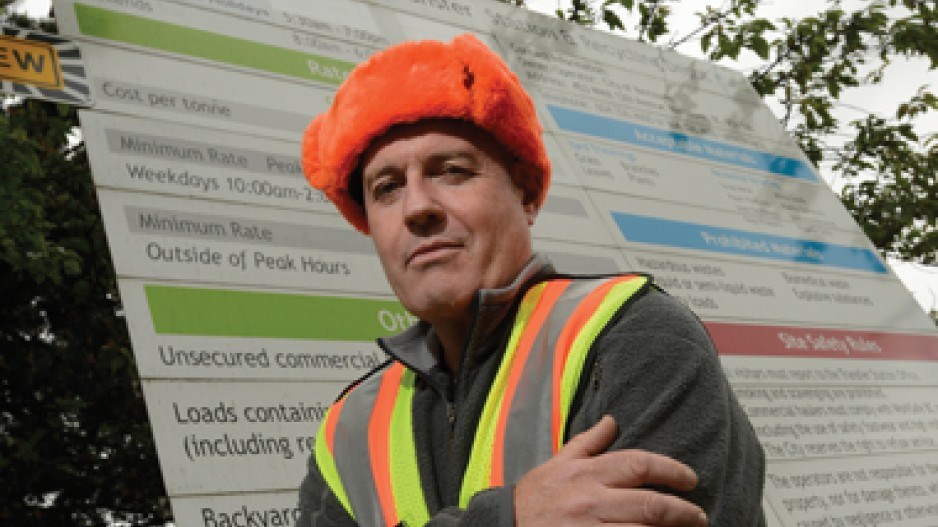Vancouver's waste haulers are steaming at Metro Vancouver’s plan to control garbage by eliminating their option to use private garbage tips.
“The [Metro Vancouver] transfer stations don’t deserve more business,” Richard Bender, the owner of a 1-800-Got-Junk franchise in Vancouver, told Business in Vancouver. “They don’t help people, they don’t make it easy … Right now my revenue per hour is lower because we’re waiting in line at transfer stations.”
Metro Vancouver says the current system, where waste haulers can use private drop-off facilities, jeopardizes its ambitious recycling and reduction targets: it aims to divert 70% of the region’s garbage by 2015 and 80% by 2020 through recycling, composting or reduction measures.
It currently diverts 55%.
Bender – speaking as a franchise owner and not on behalf of 1-800-Got-Junk – said he uses a combination of Metro Vancouver transfer stations and a private facility on Mitchell Island. He balks at the idea that one of those options could be removed in favour of what he calls an inefficient business model.
“Look at the lineups to get in, me as a commercial hauler who pays people to sort my load so when I come to them it 100% meets their regulations,” he said. “I wait in the same lineup as the three families doing it on their own.”
Ralph McRae, the chairman of Northwest Waste and a member of the Waste Management Association of B.C., is connecting the waste flow scheme with Metro Vancouver’s controversial plan to spend $500 million to build a garbage incinerator, theorizing that the regional district will need all the garbage it can get its hands on to feed the 370,000 tonne waste-to-energy plant.
The new facility is expected to make money by generating energy from combusting garbage (see “City Trash Talk: Vancouver’s plans to turn garbage into power,” issue 1216, February 12-18).
“What flow control really is, is we’re going to create a ring fence around Metro Vancouver, and inside that ring fence, we’re going to create a government monopoly for waste.”
McRae added that his company has spent $30 million to build an “advanced recycling facility” in south Vancouver. The facility, scheduled to be completed in July, would use a mechanical process to extract recyclables from unsorted garbage.
McRae said he was issued an overly restrictive licence that turned the facility into a “glorified bottle depot.” He sees that as proof Metro Vancouver wants to shut down private-sector competition.
But flow control and a new incinerator are two separate issues, said Malcolm Brodie, the chairman of Metro Vancouver’s zero waste committee. Brodie, who is also Richmond’s mayor, said the regional district must control the trash in order to meet its garbage diversion targets and to recoup millions of dollars that has been lost in tipping fees over the past two years as haulers have bypassed Metro Vancouver’s transfer stations.
“That [tipping fee] pays for the cost of the disposal of the garbage, but it also takes care of Metro Vancouver’s costs for the various programs we have surrounding solid waste,” said Brodie.
Metro Vancouver has been engaged in a public consultation process around flow control since November 2012.
The public has until May 31 to submit comments to the regional district.
The regional district is in the process of choosing the type of technology and a site for a new waste-to-energy plant. •




